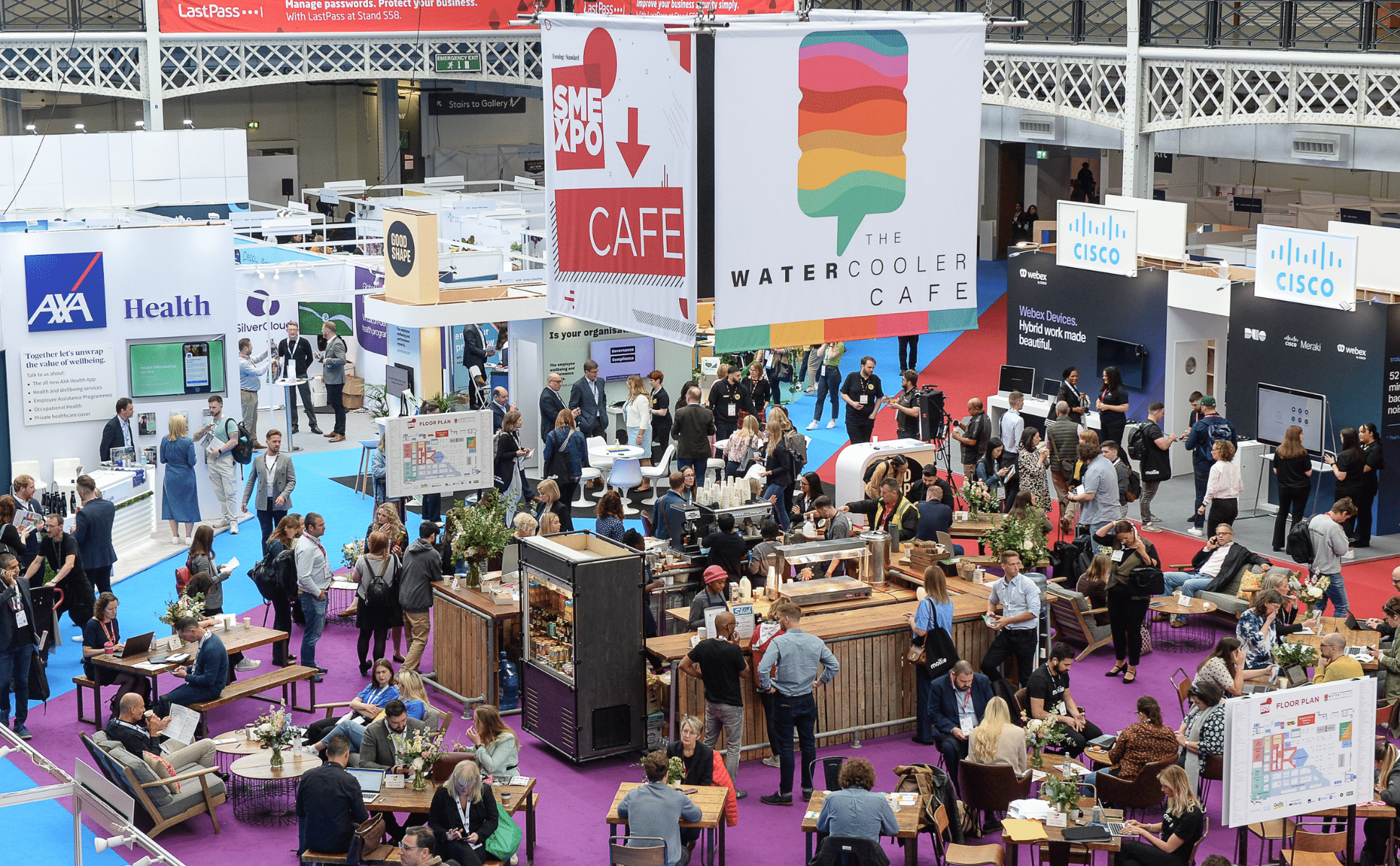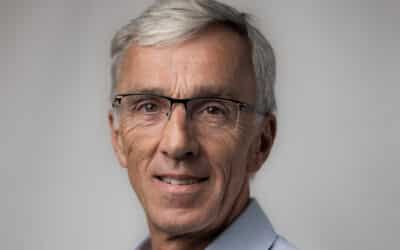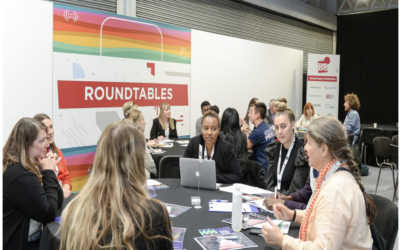The atmosphere was buzzing at The Watercooler Event, with many of the sessions full to bursting and animated conversations happening amongst the exhibitor aisles within the National Hall of Olympia’s conference and exhibition centre.
Here are 6 highlights from The Watercooler Event:
1. Terry Waite CBE sharing his extreme story of isolation, uncertainty and stress, after being taken hostage in Beirut, and what we can learn from it to apply to the workplace and the challenges we are facing today.
As Waite said, during his onstage conversation with Dr Wolfgang Seidl, Partner & Workplace Health Consulting Leader UK and Europe with Mercer Marsh Benefits, there may not initially seem like there is much common ground between his story and what’s currently going on in the corporate world, but it’s at the extremes where we can learn the most.
Yes, thankfully, the vast majority of us will never experience the physical brutality, demeaning conditions, five years in solitary confinement and torturous uncertainty about whether we will live or die as Waite – but we have all experienced the trauma of a pandemic (which we are still processing) and are still dealing with constant change and uncertainty.
His key message about how and why he survived when others didn’t?
While he didn’t feel physically or psychologically safe in his actual environment, he created a level of psychological safety, or “inner harmony” as he calls it, in his head.
He did this through managing his anger so it didn’t eat him up inside, writing books and poetry in his head to give him a purpose and developing an inner capacity and identity through really “getting on” with himself – getting to know himself deeply, both strengths and weaknesses.
As he said: “I’m using extreme examples here but you can take understandings from them.” He added: “The problem with modern life is many people are out of harmony with themselves, their neighbours and the environment, and we’re paying a terrible price for it.”
2. Paralympic powerlifter Ali Jawad’s inspirational story of competing at the Paralympics against the odds and battling Crohn’s disease.
A key recurring theme in his story is the power of expectations; his parents gave him a strong foundation to achieve by not setting limits on him, whereas society, and companies, focus on what disabled people can’t do, rather than what they can, he argued.
As one woman in the audience said, workplaces often hold damaging expectations of disabled people and need to make more effort to see their strengths, as is now happening with employees who are neurodiverse; increasingly there is recognition that neurodiversity brings huge benefits, and a new way of thinking, to companies.
3. Hearing from DFS about how changing the narrative around employee wellbeing has been so game-changing
Employee wellbeing came to the fore at DFS during the pandemic due to the huge disruption and increase in workload arising from a surge in orders in lockdown.
“People weren’t comfy at home. They needed a new sofa,” said Matt Burton, head of leadership and talent at DFS. “The home retail market exploded beyond anything we could have comprehended and caused massive disruption. Our teams have been knackered for the last 18 months.”
Hence bringing a digital solution on board to work with the company to improve its “mental fitness”. This way of talking about mental health – putting it in the context of fitness and drawing parallels with physical health – has been a “game changer”.
He added: “Our leaders had shied away from mental health conversations. Just introducing the term ‘mental fitness’, that little change in narrative, has the capacity to make a world of difference. That little narrative shift has upped the confidence of leaders to talk about it and has unlocked more benefits for us.”
READ THE FULL ARTICLE AT MAKE A DIFFERENCE MEDIA
This article was written by Make a Difference Media




